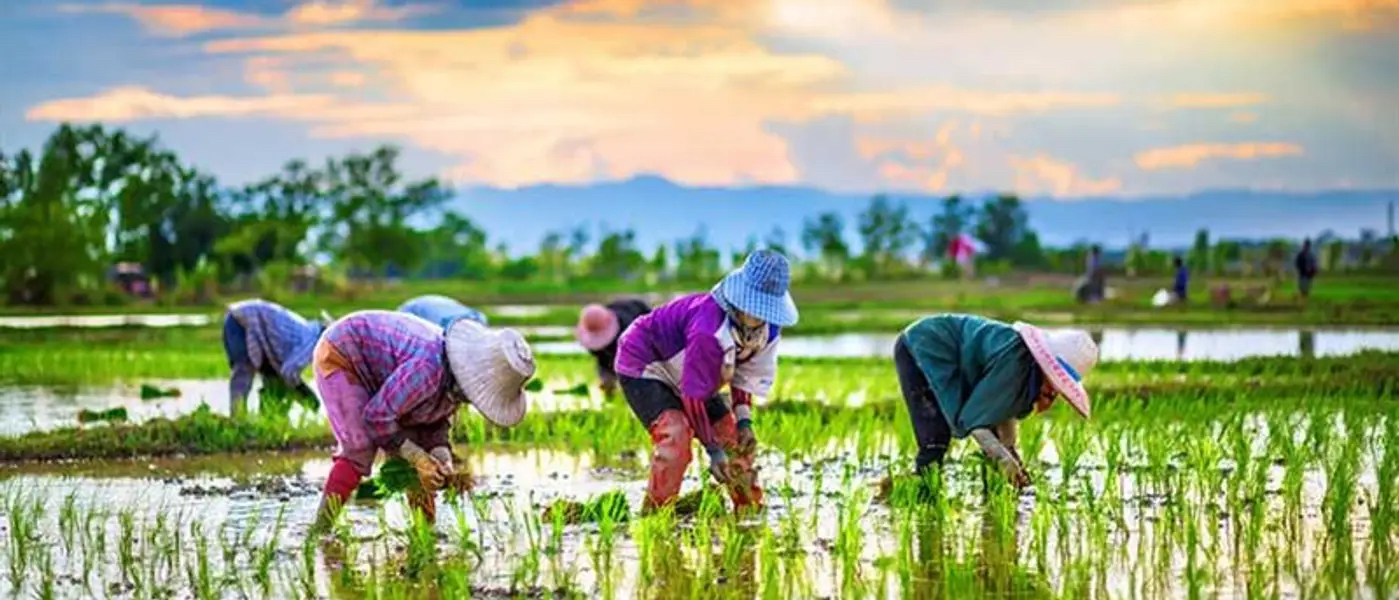E4D Fellow: Fatemeh Adelisardou
Improving the Sustainability of Food Production under Climate Change: Reinventing Agroecological Rice Farming in Iran
Project duration: 2024-2027
Supervisor at ETH Zurich: Prof. Dr. Johanna Jacobi (Agroecological Transitions)
Additional Supervisor: Prof. Dr. Lutz Merbold (external page Agroscope)
Collaborators: The Ministry of Agriculture, Tehran, Iran, Agriculture Jihan Organization of Mazandaran Province, Iran
Partner institutions: external page Gorgan University of Agricultural Sciences and Natural Resources, Iran
Contact:
Project Description
Climate change is a growing threat to the global agricultural system and food security. This reality is particularly evident in the agriculture sector of northern Iran, where farming is predominantly rainfed and smallholder rice farmers have limited alternative sources of livelihood. Rice is the second most important staple food in the Iranian diet. Water scarcity, Input-intensive, and rice monoculture farming practices have decreased yields and increased pesticide and fertilizer use, causing food insecurity in Iran. On top of this, the adaptive capacity of smallholder rice farming communities, whose food and income security are based on rice farming, is very limited.
Agroecology, a sustainable approach to farming for climate change mitigation and adaptation that reduces climate risk has been described as feasible for smallholder farmers and as a knowledge-intensive field. However, agroecological research has not been the focus of international and national agricultural research centers, especially in Iran, and therefore, there are few standardized methods to assess the social, economic, and ecological performance of agroecological farming systems. To this end, the Food and Agriculture Organization of the United Nations (FAO) developed an analytical framework, the Tool for Agroecology Performance Evaluation (TAPE) to produce global and harmonized evidence on the multidimensional performance of agroecological systems.
In the initial phase, Fatemeh will create a comprehensive model to evaluate water resource supply and demand in the pilot region, Mazandaran province, Iran. The aim of this part is to identify specific climate vulnerabilities and subsequently connect them to the next relevant parts of the project for the purpose of determining site-specific agroecological practices.
Afterward, Fatemeh will utilize TAPE to evaluate the multidimensional agroecological performance of 200 conventional and innovative rice farms in a purposeful sampling design. The outcomes will be disseminated across the pilot region through extension services provided by farmer field schools, and F2F training-learning networks.

The project's outcomes will encompass three key aspects: Firstly, the community diagnostic provides crucial information about the climate change impact hotspots, the current level of agroecological performance; and most importantly the main challenges of achieving sustainable livelihoods for smallholder rice farmers. This diagnostic allows for the development of a timeline, benchmarks, and outcomes to keep the work on track. Secondly, it will drive paradigm shifts that encourage the recognition and seamless integration of agroecological principles and practices into both policies and broader societal frameworks. Lastly, the project will strategically focus on building capacities, particularly smallholders. This capacity enhancement will extend from on-farm learning to fostering Farmer2Farmer learning knowledge networks.